Accumulating evidence shows that specialized structures of white blood cells (lymphocytes), named tertiary lymphoid organs (TLOs), can form inside tumors and play a crucial role in fighting cancer progression. Unlocking the formation and functions of TLOs holds great promise for advancing cancer immunotherapy, but studying TLOs remains challenging due to the substantial disparities between humans and animal models. To address this, Dr. Peng [Connie and Bob Lurie Fellow] will leverage single-cell sequencing data and high-throughput screening methods to investigate a key initiator of TLO formation in human tumors. He further plans to develop innovative genetic models that enable the study of TLOs in a human-specific context within living organisms. By unraveling the intricacies of TLO biology, Dr. Peng aims to uncover novel therapies that can augment cancer immunotherapy and enhance treatment outcomes across various cancer types. Dr. Peng received his PhD from Baylor College of Medicine, Houston and his BS from Zhejiang University, Hangzhou, Zhejiang.
All Cancers
Current Projects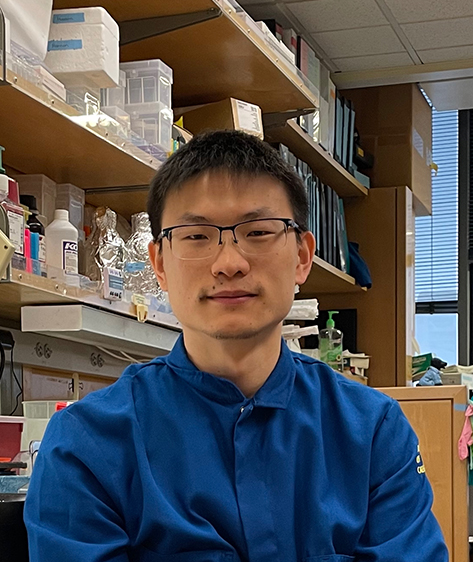
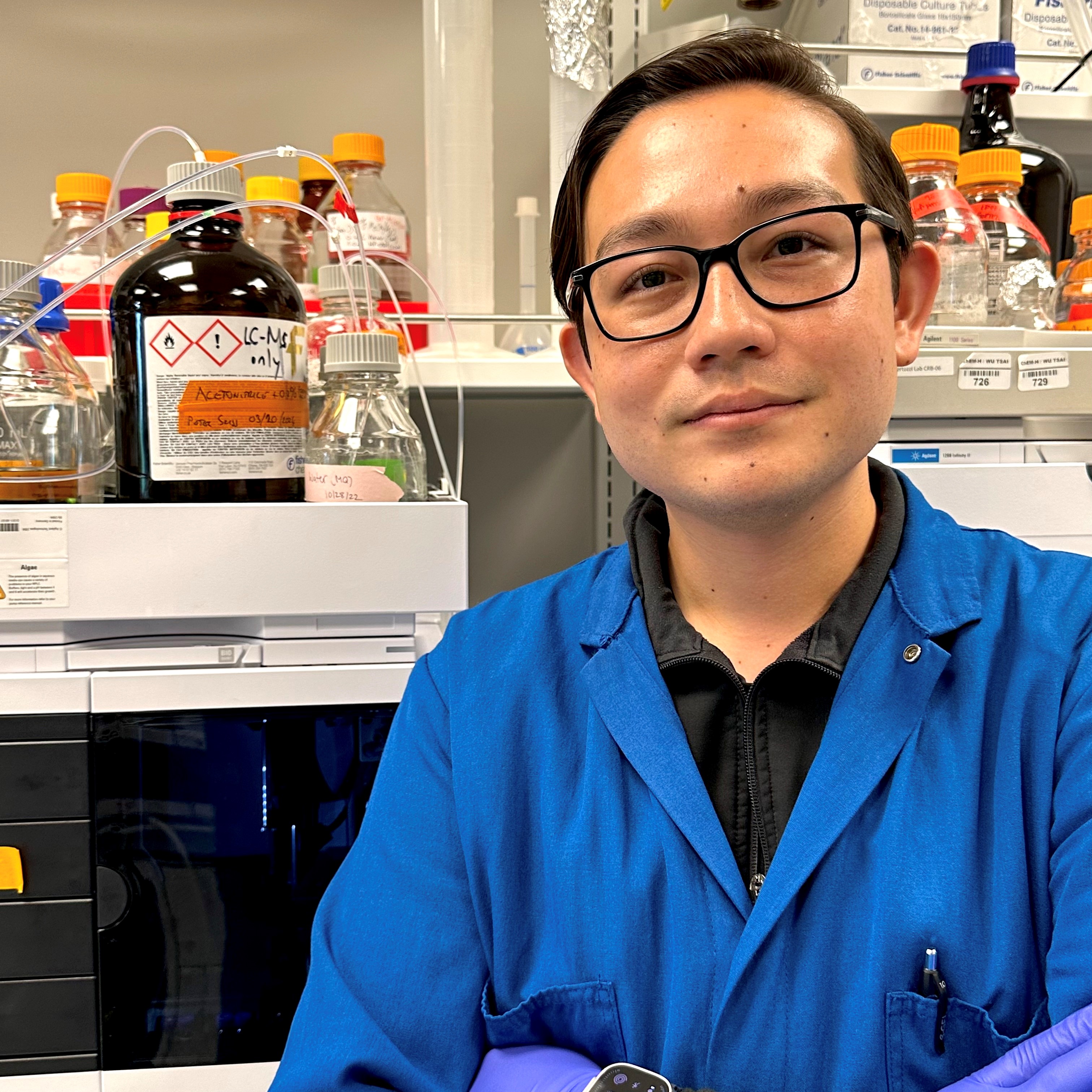
Cancer immunotherapies have shown remarkable benefits, but many tumors remain unresponsive to existing treatments. The mechanisms cancer cells use to evade immune responses during treatment remain largely unknown. Altered cell surface glycosylation, the process of attaching sugars to cell surface biomolecules, is a hallmark of many human cancers. The interaction between cell surface glycoproteins on immune cells with cancer cells represents a major axis of immune evasion and plays a vital role in how cancer cells suppress immune responses during cancer treatment. Dr. Roberts’ [Connie and Bob Lurie Fellow] research aims to molecularly define cell surface glycosylation and understand the role of glycosylation in driving cancer immunosuppression. This knowledge will be leveraged to illuminate the underlying mechanisms of tumor immune evasion and enable next-generation classes of cancer immunotherapies. Dr. Roberts received his PhD from University of Wisconsin–Madison, Madison and his BS from University of California, San Diego.
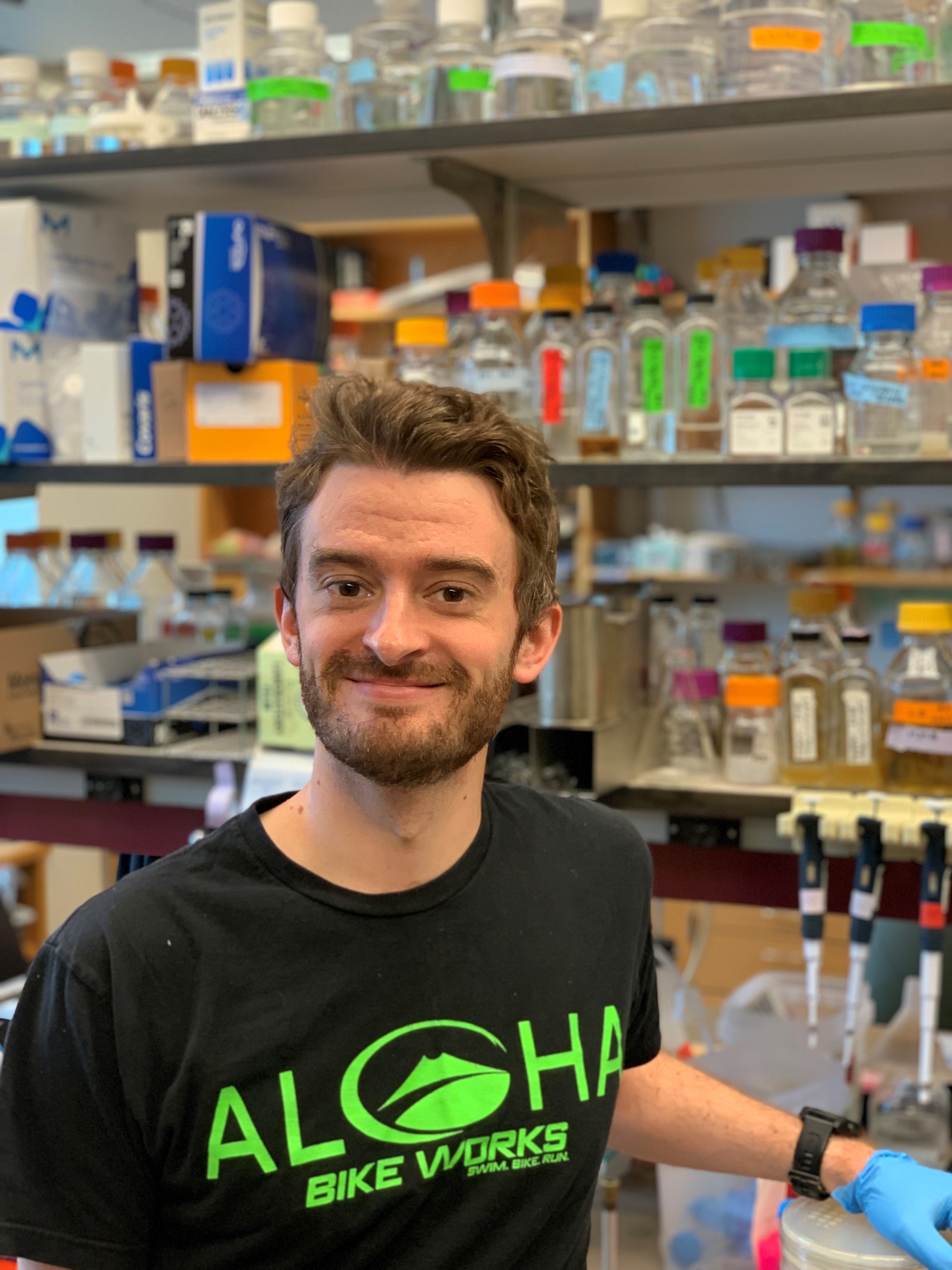
Bacteria have diverse immune systems to defend themselves against viral invaders, many of which use molecular mechanisms also seen in mammalian immune systems. Dr. Roney [HHMI Fellow] studies how bacterial immune systems detect virally compromised cells, and how viruses undermine immune systems to prevent the elimination of virally compromised cells from the population. The goal of his research is to uncover novel mechanisms and principles of immune systems that are found across domains of life. The discoveries resulting from this work will broaden our understanding of how immune systems detect and eliminate compromised cells, like cancer cells, and could help guide development of new immunotherapies. Dr. Roney received his PhD from Harvard University, Cambridge and his MS and BS from University of Ottawa, Ottawa.
Normally, epithelial tissues, which cover all external body surfaces and line internal cavities, expel unwanted cells to maintain health in a process known as cell extrusion. However, some cancer cells, particularly those with the common RasV12 mutation, manage to avoid extrusion. Using Drosophila (fruit flies) as a model, Dr. Sakai [Rhee Family Fellow] will explore how RasV12-mutant cells manipulate neighboring cells to avoid extrusion. Understanding this process could lead to new ways to prevent cancer cells from escaping the epithelial defense, offering potential new treatments. Dr. Sakai received his PhD and BS from Nagoya University, Nagoya.
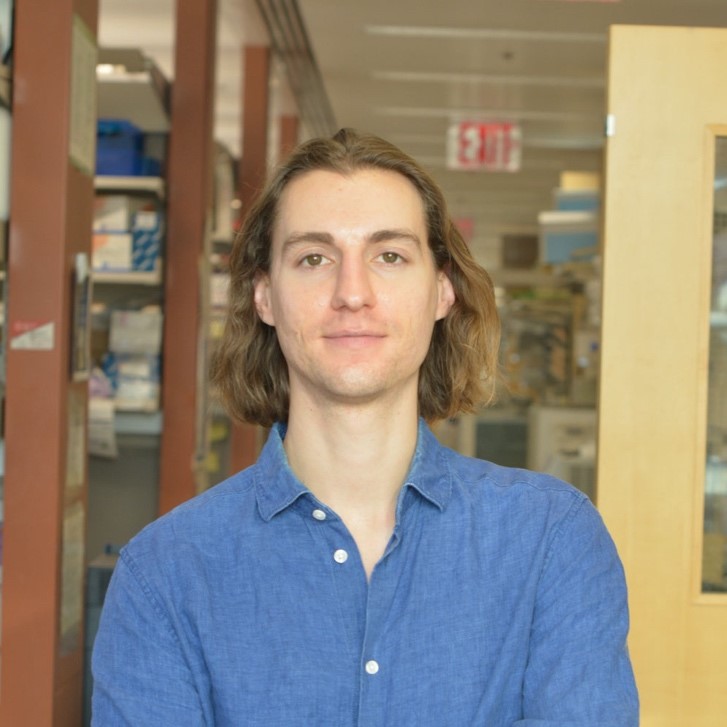
T lymphocytes, an important component of the immune system, recognize infected or cancerous cells with great specificity, ensuring targeted elimination. These potent cells are kept in check by regulatory T cells, the guardians of the immune system. While essential for curtailing excessive inflammation and preventing autoimmunity, their immunosuppressive properties can promote the development and progression of cancer. Regulatory T cells are distinguished by the presence of a protein called Foxp3, which plays a critical role in their differentiation, function and fitness. Foxp3 deficiency results in fatal autoimmune inflammatory disease, underscoring its importance for maintaining organismal health. Despite its significance, however, the reliance of regulatory T cells on Foxp3 in disease contexts like infection and cancer remains incompletely understood. Dr. Schiepers [HHMI Fellow] will study the fate and function of regulatory T cells in these settings using mouse genetics approaches and disease models of melanoma and colorectal cancer. Dr. Schiepers received his PhD from The Rockefeller University, New York and his MS and BS from Utrecht University, Utrecht.
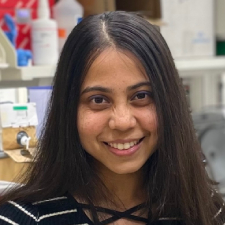
An organism’s life experiences, such as exposure to bacterial pathogens, can cause sustained changes in its physiology and behavior. How these experiences are encoded in heritable RNA and DNA-associated proteins (called chromatin), and how these in turn affect the physiology of the organism itself and its progeny, are not well understood. Previous research has shown that the roundworm C. elegans can “read” small non-coding RNAs from the pathogenic bacterium Pseudomonas aeruginosa and learn and teach its progeny to avoid this bacterium. Dr. Sengupta’s [Rebecca Ridley Kry Fellow] research investigates how bacterial small RNAs taken up in the intestine can result in lifelong, multigenerational, and organism-wide changes at the epigenetic (RNA and chromatin) level to regulate brain function and behavior. She will investigate which small RNA and chromatin-associated genes are required for the learned response, where these genes function, and what changes at the epigenetic and gene expression level underlie this response. This will inform principles of epigenetic regulation of gene expression following diverse environmental stimuli, and stimuli within tissue environments, including tumor microenvironments. Dr. Sengupta received her PhD from Yale University and her MS and BS from the Indian Institute of Science Education and Research.
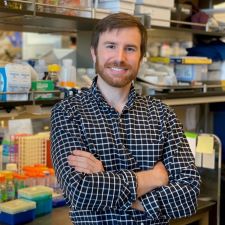
Cancer cells adapt their metabolism to achieve rapid growth and proliferation. Much of their metabolic malleability hinges on mitochondria, subcellular hubs for energy transformation and biosynthesis. As a key means to control mitochondrial composition and meet metabolic demands, cells mark mitochondrial proteins for degradation by a process called ubiquitylation. How both cancerous and healthy cells direct and monitor mitochondrial ubiquitylation remains poorly understood. Dr. Sheetz [HHMI Fellow] aims to dissect the cellular machinery that performs mitochondrial ubiquitylation and determine how this process promotes metabolic adaptability in cancer cells. A major translational goal is to identify approaches for tuning the levels of mitochondrial ubiquitylation in tumors and in metabolic disorders that put patients at risk for cancer. Dr. Sheetz received his PhD from Yale University, New Haven and his BS from the University of North Carolina, Chapel Hill.
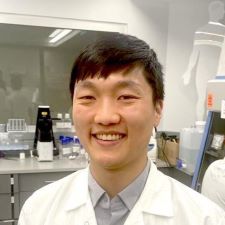
Cells in our body communicate with each other in a highly selective manner. These cell-cell interactions form the basis of numerous physiological functions, such as neuronal wiring and immune recognition. Dr. Shin plans to explore the general principles of cell-cell communication by constructing a synthetic synapse and studying its organization and functional diversity. His findings will elucidate the mechanisms that organize cell-cell interfaces involved in immune cell recognition of cancer and in the cell-type transitions associated with cancer and metastasis. This work will also provide a platform for engineering highly customized cell-cell interfaces, which may prove useful in engineering immune cell therapeutics.
This project employs the stickers-and-spacers model adapted from polymer physics. Macromolecules such as proteins and nucleic acids are described as a sequence of attractive domains called "stickers" and flexible, non-interacting domains called "spacers." Dr. Shin will use his lab's Monte Carlo simulation engine LaSSI (Lattice simulation engine for Sticker and Spacer Interactions) to calculate the average interactions between macromolecules and analyze their mesoscopic organization and phase properties.
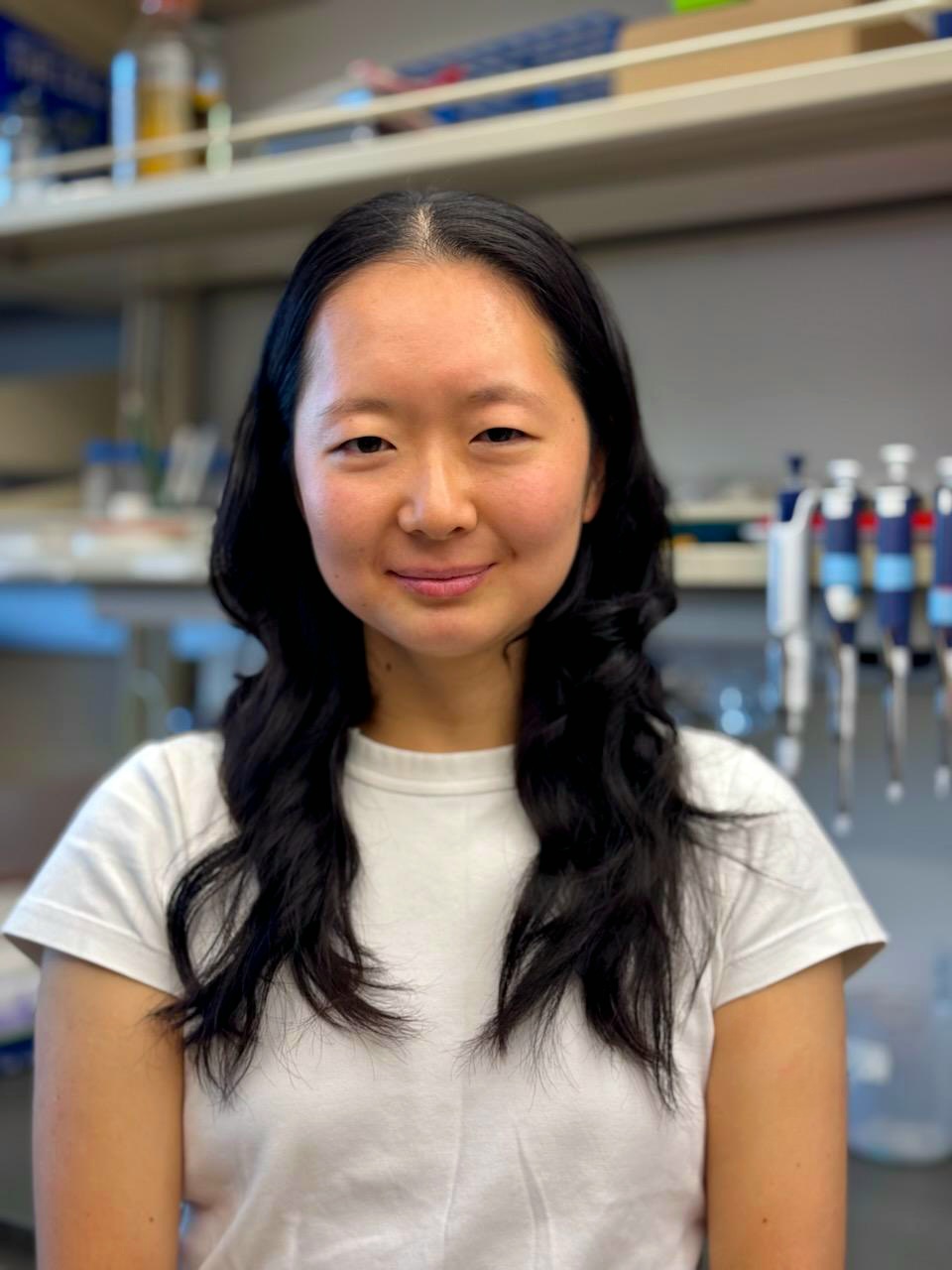
To power directional movement, cells build dynamic sheet-like protrusions at their leading edge. How individual molecules are coordinated to produce these changes in cell morphology is poorly appreciated. Dr. Sim [Connie and Bob Lurie Fellow] uses immune cell migration as a model system to investigate the self-organization of a protein assembly known as the WAVE complex, which facilitates the formation of these protrusions in migratory cells. Her work will harness recent advances in electron microscopy and protein prediction and design to study the mechanism of the WAVE complex. As a critical player in cell migration, the dysregulation of the WAVE complex is associated with tumor cell invasion and metastasis in several cancer types. This aberrant migration enables cancer cells to travel to and infiltrate adjacent tissue sites. Understanding the fundamental mechanisms of cell migration can thus better inform the development of therapeutics that limit the progression of cancer. Dr. Sim received her PhD from the University of California, Berkeley and her BA from Bowdoin College, Brunswick.
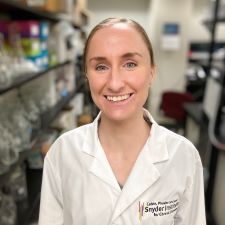
Neutrophils are important anti-microbial cells within the innate immune system. Recently, it has been shown that neutrophils can perform diverse functions, taking on both pro-inflammatory and pro-healing roles in response to tissue injury or insult. Dr. Siwicki's [Dale F. and Betty Ann Frey Fellow] goal is to understand how different neutrophil subtypes or states function to balance inflammatory versus regenerative processes, ultimately influencing tissue health and cancer. This work has the potential to uncover the basis of neutrophils' pro-tumor versus anti-tumor functions and could open the door to therapeutic targeting of specific neutrophil behaviors in order to improve clinical outcomes in cancer. Dr. Siwicki received her PhD from Harvard Medical School, Boston and ScB from Brown University, Providence.







